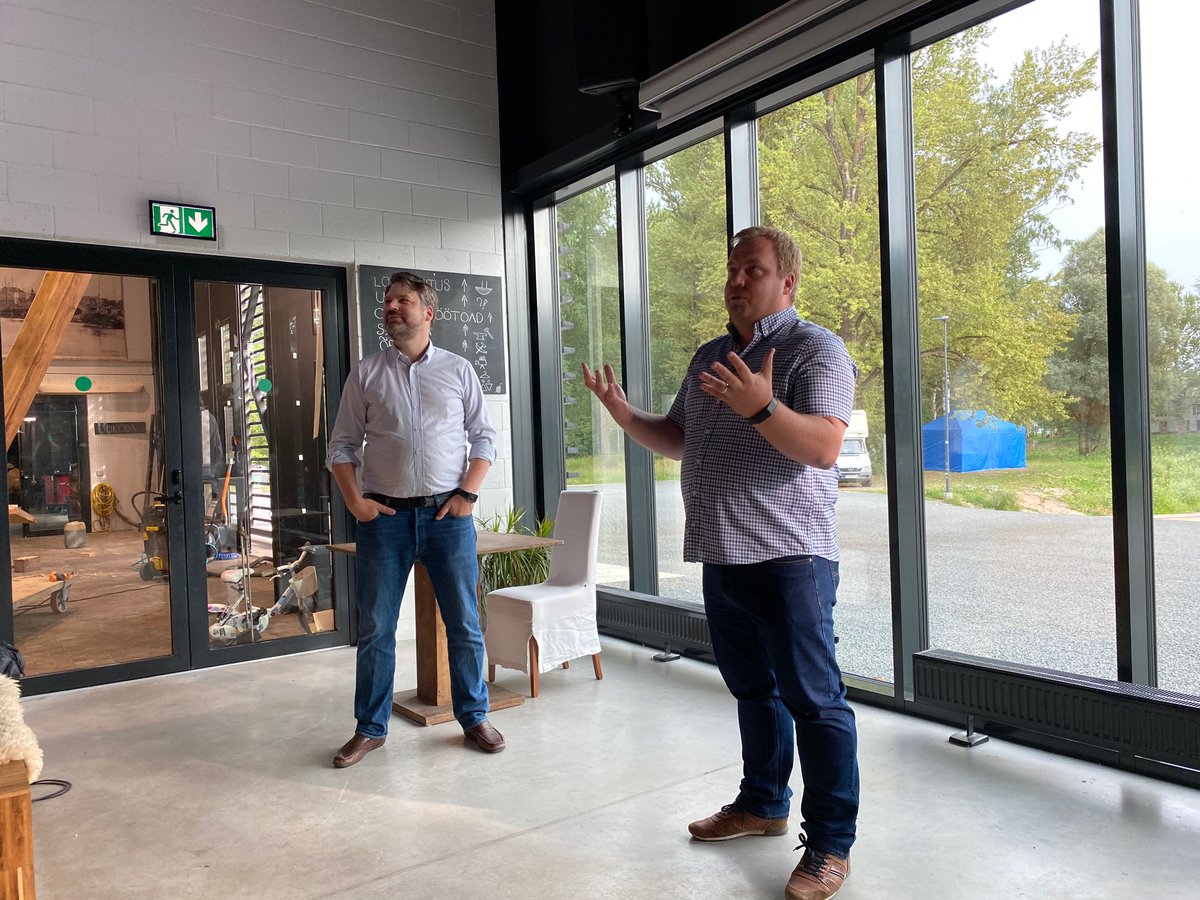
For Day 7 of our #DigitalSummerInEstonia, we are finally meeting face to face in Tartu. Proof that our presents from @UniKonstanz @Konstanz_Pol_PA made it to Estonia! 







@UniKonstanz @Konstanz_Pol_PA Day 8 of our #DigitalSummerInEstonia starts in a few minutes with @steiny & my interactive seminar on human-centered design of digital public services. 🎁🙌🇪🇪
And now a very special treat: the great @sikkut is sharing insights into the Estonian digital journey with us, his vision for the future of digital. It‘s all about change management: 





Day 9 of our #DigitalSummerInEstonia starts with an uncomfortable and very necessary topic: what does change feel like in the digital transformation of public administrations?
So cool: @JorisvanderVoet is telling our students via video how long it took him and his co-authors to publish their literature review on change management: 4 years 😳 

A very special treat for our students at the #DigitalSummerInEstonia: the founder of the societal digital skilling program ‚tiger leap‘ and former president of Estonia Ilves is talking about the political decisions that the country made to become a digital nation. 



A President that knows how to code: „Once you get kids to do it, you can go anywhere. That’s when the idea was born to get all schools online. You get some kids hooked, because some of them get to do crazy things.“
He contrasts Palo Alto to Estonia: being digitized in the private sector, means nothing: it doesn’t spill over in the public sector. In Estonia digitization was seen as an industrialization effort to get out of Soviet Union poverty.
Three pillar system: 1) secure unique digital identity, end-to-end encryption/2-factor authentication, 2) distributed system (data hang in there like a huge system of Christmas ornaments). 🎄🧑🎄
The first two factors are a political problem and not a technical problem. He quotes the German „Datenangst“ and says that Germany will never get it. He gave up on us, liebe #twitterverwaltung.
Third pillar: data integrity is now possible, so that no one can change the data (like blood type, bank account numbers, etc.). Since 2008, Estonia has all critical data on a private Blockchain/KSI (laws, bank data, healthcare dat, court cases).
Estonia was invaded several times during the 20th Century, as a result they placed a physical server in Luxemburg that has all critical data stored on it - in case of another invasion, they will know who a citizen is. 😳
It‘s not important what Estonia is doing next in digital, but to get the rest of the European countries on digital services. Case in point: digital prescriptions.
The problem again is not technical (you can stitch it together in a week): it‘s the drug subsidy differences across the 27 countries.
Advice for Germany: it’s a matter of political will to take risks and to do sth that is not guaranteed to be a win. „Corridors of power“ are necessary: politicians and technologists don’t talk to each other. Geeks have limited understanding of ethics, politicians don’t know tech
Case in point: US Congress’ questioning Mark Zuckerberg „How do you make money?“ 🤪
Suggestion: verify and ID on social media
Suggestion: verify and ID on social media
How to push digitalization: don’t have a minister of digital affairs, but have someone right under the president/prime minister/chancellor with enough power and means to do this across government. You also need a crisis - that always helps. 🤸🏻♀️🥷
• • •
Missing some Tweet in this thread? You can try to
force a refresh








